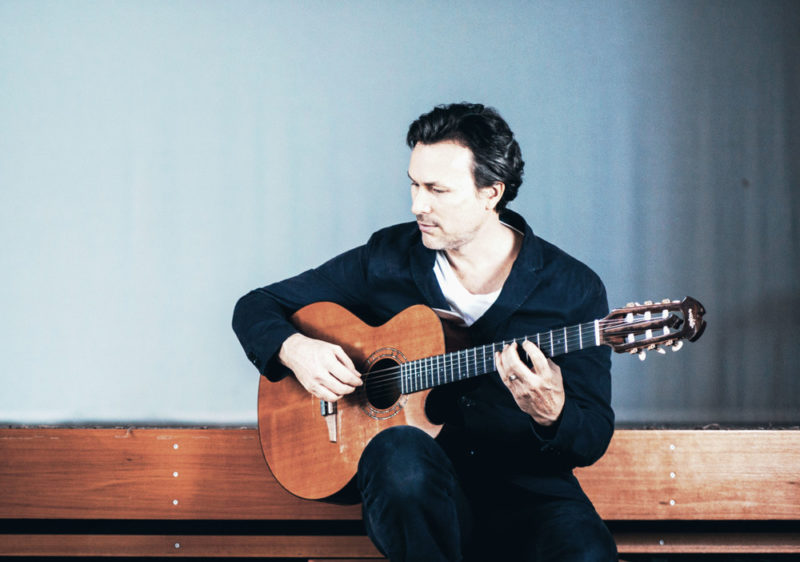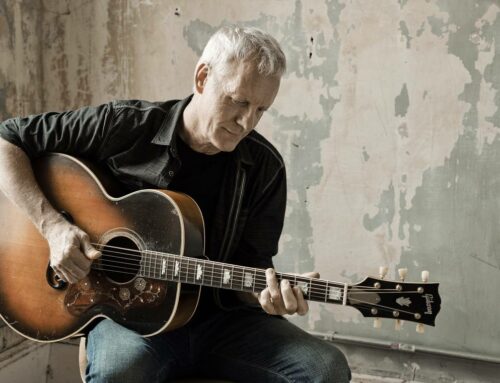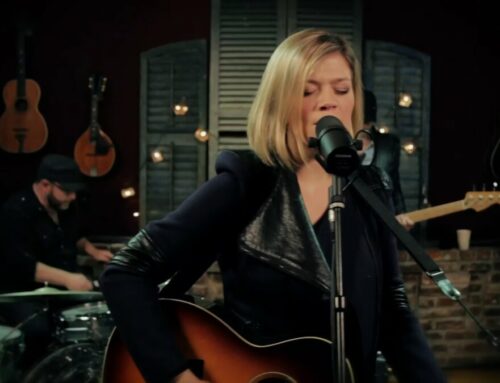Top 10 Ways to Improve Your Music Performance
by Jessica Brandon
When you begin playing around town, either at open mics or showcase shows, you will quickly learn that you are far from the only singer-songwriter playing acoustic guitar and trying to get people to notice you. The only way to do that is to impress them with your performance. Here are the top 10 tips to improve your music performance so you can stick out from the crowd.
1. Know Your Stuff.
Nothing will cause an audience to write you off quicker than being unprepared. If you have to pause to remember the next line or chord, they will soon tire of waiting for you and will turn their attention elsewhere. Playing from sheet music or reading lyrics off a page makes you look like an amature and doesn’t project an air of confidence.
By having your songs memorized and well rehearsed, on the other hand, you come off as a professional, and the audience is willing to trust you with their attention. You can sing with intention and connect with the crowd. So, practice, practice, practice! Also, read related subject: Top 10 Tips for Practicing Music
2. Be Dynamic.
3 or 4 minutes doesn’t seem very long, but when you’re on stage it can be an eternity. If your song sounds the same from start to finish, it may become monotonous and become background noise. Changing the volume, intensity, and tone throughout your song can help keep the crowd’s focus on you.
Luckily there are some simple tricks you can employ to spice up a repetitive chord progression. Changing your strumming pattern or playing a verse extra loud can add energy and emphasis. Or you could play the chords only once and let it ring, or play the notes of the chords in arpeggio to drop the energy and turn the focus toward the lyrics.
3. Sing To Your Audience, Not At Them.
A live music performance has the potential to be an intimate experience if you’re willing to connect with your audience. Ideally, by forming a bond with the audience you can create a unique experience that only you and the people in the room that night will be privileged to have. The energy the crowd gives you can put you in the zone, heightening your performance and further increasing the energy in the crowd.
If you sing with your eyes closed or sing over everyone’s heads, however, you throw away the opportunity to connect with anyone. If that’s the case they might as well be listening to a jukebox. Make a point to make eye contact with some members of the crowd throughout the song. At least split the audience into sections and shift your focus between them while you play so everyone in the room has a chance to feel like you’re performing just for them.
4. Control Your Breath.
Air is the fuel you need for your vocal performance. Learning techniques like Bosnian Belly Breathing™ in order to sing from your diaphragm can ensure that you are able to sing with the force you want and hold notes for maximum effect.
5. Sing With Intention.
A song is more than a collection of pretty sounds. A song can tell a story or convey powerful emotions. Once you’ve mastered your breath and memorized and rehearsed your songs, you can truly sing with intention.
One technique that can help you sing with intention is to assign numerical values, from 1 to 10, in order to represent how much volume or energy you need to properly perform different parts of the song. This will allow you to be specific about how you intend to perform on various criteria.
6. Overcome Your Vocal Defense Mechanisms.
When you feel less than confident in your abilities, you aren’t able to perform at your best. If you are embarrassed by a poorly written verse, for example, you will likely mumble through it so people cannot pick out your weak prose. If you don’t think you can hold and sustain a particular note, you’re more likely to sing it quietly and let it trail off.
Recognizing and overcoming these types of vocal defense mechanisms can make the difference between an average and an outstanding performance. Put in whatever work you need to, whether it’s rewriting your lyrics, practicing your chord progressions, or singing scales, so that you have the confidence to give a powerful performance.
7. Develop Your Own Style.
When you are beginning your performing journey, you will likely sound like a poor imitation of your favorite musicians. This is natural and encouraged. You should try out elements of great singers in order to expand your repertoire of performance skills.
Eventually, however, you need to curate your own recognizable style. Take the skills that you are best at and develop them into something that is new and uniquely yours. If all goes according to plan, some day a new generation of performers will develop their chops by imitating you.
8. Tell the Story of the Song.
It’s easy to get caught up in the details of the song and fret over being perfectly in tune, hitting every note perfectly, and not flubbing any words. It is important to remember, however, that these are only minor details compared to the overall goal of telling the song’s story.
The song’s purpose is to tell a story and make the audience feel the emotions involved in the process. As long as you are achieving this, the crowd will ignore any minor imperfections.
9. Play Through Your Mistakes.
The audience usually doesn’t know how the song is supposed to sound, so they are unlikely to notice when you make a mistake as long as you don’t call attention to it. If you just continue playing with confidence, they will never notice.
If you pause the song, or even go back to replay the part properly, all you are doing is letting the crowd know that you’ve made a mistake. They will have less confidence in you moving forward.
Prince had a policy in which if he played a wrong note during a solo, he would simply repeat the entire phrase with the incorrect note in place. If it happens once it may stand out as a mistake, but by playing it a second time on purpose, it becomes intentional, and is no longer a mistake.
10. Move Around.
When you are performing live, the crowd didn’t come to just hear you, they also came to see you. Just like you need to make sure your song is dynamic, so too you need to make sure you are offering a stage picture that will keep your audience’s attention. Instead of standing still in front of the microphone the entire time, move around whenever you are free to.
By utilizing these 10 tips you can improve your music performance and create a memorable experience that will connect with your audience. Have any tips or advice you’d like to add? Leave them in the comments below.
For more information on the 17th Annual IAMA (International Acoustic Music Awards), register online at: https://inacoustic.com/enter-here





Thank you so much. Glad to hear this here. God Bless You ALL
Regard
Cowboy-Lone
Hello, even I work with top musicians in Nashville, my job is in mathematics. I am a professor in the math department at University of Texas at El Paso and every time that I have the opportunity, even in vacations I go to Nashville to record a song or I would do something related to music. My songs are very good quality but it is difficult for me to promote my music. I like very much the tips that you sugested here not only for music but for every discipline, even for my teaching! Thank you very much for the opportunity ! Please see my webpage, I am also a member of taxi.
nice article well done. thank you
Excellent and welcome suggestions. I’m the lead singer of Evening Peace (www.EveningPeace.com) and the composer of most of our songs. I just donated one of my songs, “THEY! A Planetary Anthem,” to the Uunited Nations for their “11 Days Of Global Unity.” My song can be downloaded free from our website for Sept. and Oct. I write to make a positive difference in an unfortunately choatic world. Tough to move around the stage when you’re on a stationary mic, while playing a guitar and singing. However, your advice makes great sense of course. Will try to send a song for the International Acoustic Music Awards.
Thanks for your fine contributions to music and performance—
Art Davis